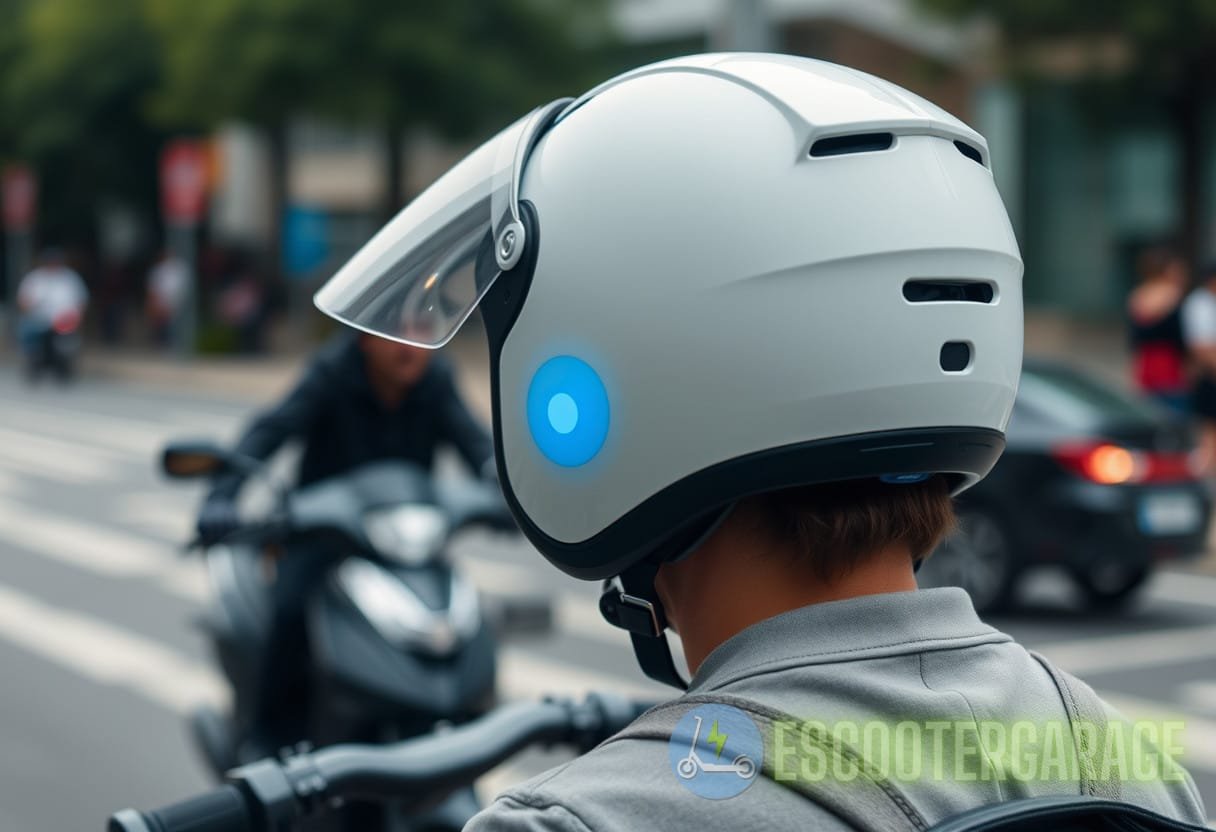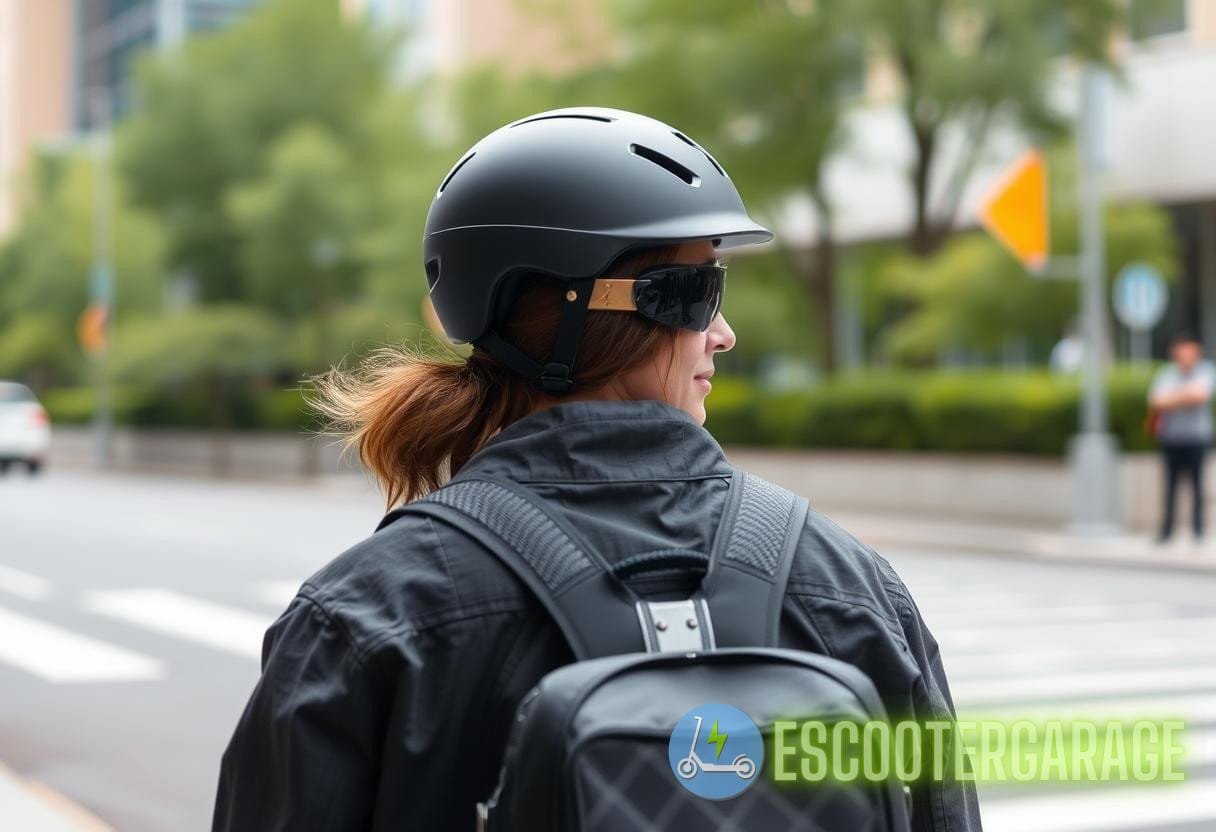Integrating Biometric Feedback: The Future of eScooter Helmet Safety and Personalized Protection
The rapid growth of eScooter usage has resulted in an increasing focus on rider safety, especially concerning the equipment used. Smart helmet safety has become a focal point for developing innovative solutions. By integrating biometric feedback systems into helmets, manufacturers create technology that not only protects riders but also personalizes their safety experience.
The Current State of eScooter Helmet Safety
eScooter safety concerns have escalated due to the increasing rate of accidents. According to studies, riders are five times more likely to suffer head injuries compared to those on traditional bicycles. This alarming statistic underscores the necessity for improved helmet technology.
- Statistics: The CDC reports an estimated 1,500 lives lost each year due to motorcycle-related head injuries.
- Market Growth: The eScooter market is projected to grow from $18 billion in 2021 to approximately $42 billion by 2027, indicating the necessity for robust safety measures.
- Helmet Use: Despite helmet laws in numerous states, many riders opt not to wear them, exposing themselves to significant risks.
The challenge is to encourage helmet use and improve their effectiveness, thus making smart helmet safety a pressing topic in public discourse.
Biometric Technology in Helmets
Biometric technology integrates measurements of physiological data to enhance safety features in helmets. Sensors collect information such as heart rate, body temperature, and even stress levels, leading to the development of smart helmets capable of providing real-time feedback to riders.
- Examples of Biometric Sensors:
- Heart rate monitors
- Accelerometers for detecting falls
- Temperature sensors
- Potential Applications:
- Accident detection and automatic emergency alerts
- Real-time health monitoring for proactive safety measures
- Location tracking to ensure rider safety
Such integrations illustrate that the future of smart helmet safety lies in merging conventional protective features with advanced technology for a comprehensive safety profile.
The Benefits of Integrating Biometric Feedback
Integrating biometric feedback into eScooter helmets presents numerous advantages. These benefits transcend traditional helmet features, enhancing rider safety and personalizing the protective experience.
- Enhanced Safety: Immediate detection of high-risk situations can lead to prompt alerts, minimizing potential injuries.
- Data Collection: Biometric feedback aids in gathering data related to rider behavior, which can contribute to broader traffic safety studies.
- Personalized Protection: Helmets can adapt their safety features according to individual rider needs by analyzing biometric data over time.
The integration of these features into smart helmet safety not only revolutionizes helmet functionality but could also reduce the overall number of accidents.
Case Studies: Real-World Implementations
Case Study 1: The Smart Helmet by Aster Industries
Aster Industries introduced a prototype of a smart helmet with built-in biometric sensors. This helmet features an integrated communication system that alerts emergency services in case of a crash detected by the accelerometers. During testing, the helmet successfully identified 95% of simulated fall scenarios, demonstrating significant potential in accident detection.

Furthermore, the helmet also monitored the wearer’s heart rate, providing real-time data to ensure the rider was not overstressed. This proactive monitoring is crucial for riders, especially in high-traffic areas, opening discussions about how smart helmet safety can evolve.
Case Study 2: The TSG Paragon Helmet
The TSG Paragon helmet incorporates advanced technology that monitors and records biometric data. In partnerships with healthcare professionals, the data collected has been invaluable for understanding rider behavior and the impact of stress on riding performance. The helmet boasts a user-friendly interface displaying real-time analytics about the rider’s physiological state on a connected mobile app.
By employing this technology, TSG is at the forefront of developing smart helmet safety that transcends traditional use, offering real-time assessments that enhance the overall riding experience.
Ethical Considerations and Privacy Issues
The use of biometric data raises ethical considerations and potential privacy issues. Riders may express concerns regarding how their data is collected, stored, and utilized. Clear regulations and policies are crucial to ensure that data privacy is held paramount.
- Data Storage: Manufacturers should provide transparency about how biometric data is stored and used.
- Consent: Riders should be informed and provide consent for their data to be collected during rides.
- Regulatory Compliance: Compliance with data protection regulations, like GDPR, is essential to build trust among users.
Ensuring privacy and ethical handling of biometric data will determine customer acceptance and the success of smart helmet safety in the marketplace.
Future Prospects of Biometric Helmets
The advancement of technology points toward a promising future for biometric helmets in the eScooter industry. Emerging technologies such as artificial intelligence (AI) and machine learning will play significant roles in making these helmets even smarter.
- AI Predictions: Machine learning could allow helmets to predict risks based on biometric data, improving proactive safety measures.
- Integration with Smart Traffic Systems: Biometric helmets could connect with city traffic management systems, enhancing urban mobility safety.
- Expansion Beyond eScooters: The technology could extend beyond the eScooter niche to other modes of transportation, like motorcycles and bicycles.
The future of smart helmet safety could redefine what personal protective equipment means across various means of transport.
Trends in Consumer Preferences
As technology continues to evolve, consumer preferences are shifting toward more intelligent and interactive safety equipment. Recent surveys indicated that approximately 70% of consumers are willing to invest more in helmets that ensure better safety features through technology.
- Interest in Health Monitoring: Consumers express interest in products that offer health monitoring features in addition to traditional safety measures.
- Brand Accountability: Brands that prioritize sustainable practices and ethical data management resonate well with tech-savvy consumers.
- Customization: Riders are increasingly looking for customizable helmets that can adapt to their personal style while providing smart helmet safety.
These trends indicate an evolving marketplace that aligns with the integration of biometric technologies in protective gear.
Conclusion
The incorporation of biometric feedback into eScooter helmets presents a radical shift in the approach to rider safety. By focusing on smart helmet safety, manufacturers not only address the immediate need for protection but also pave the way for the personalization of safety experiences. With technological advancements and an understanding of consumer behavior, the future looks promising for safer rides in urban environments that embrace eScooters as viable transportation options.



